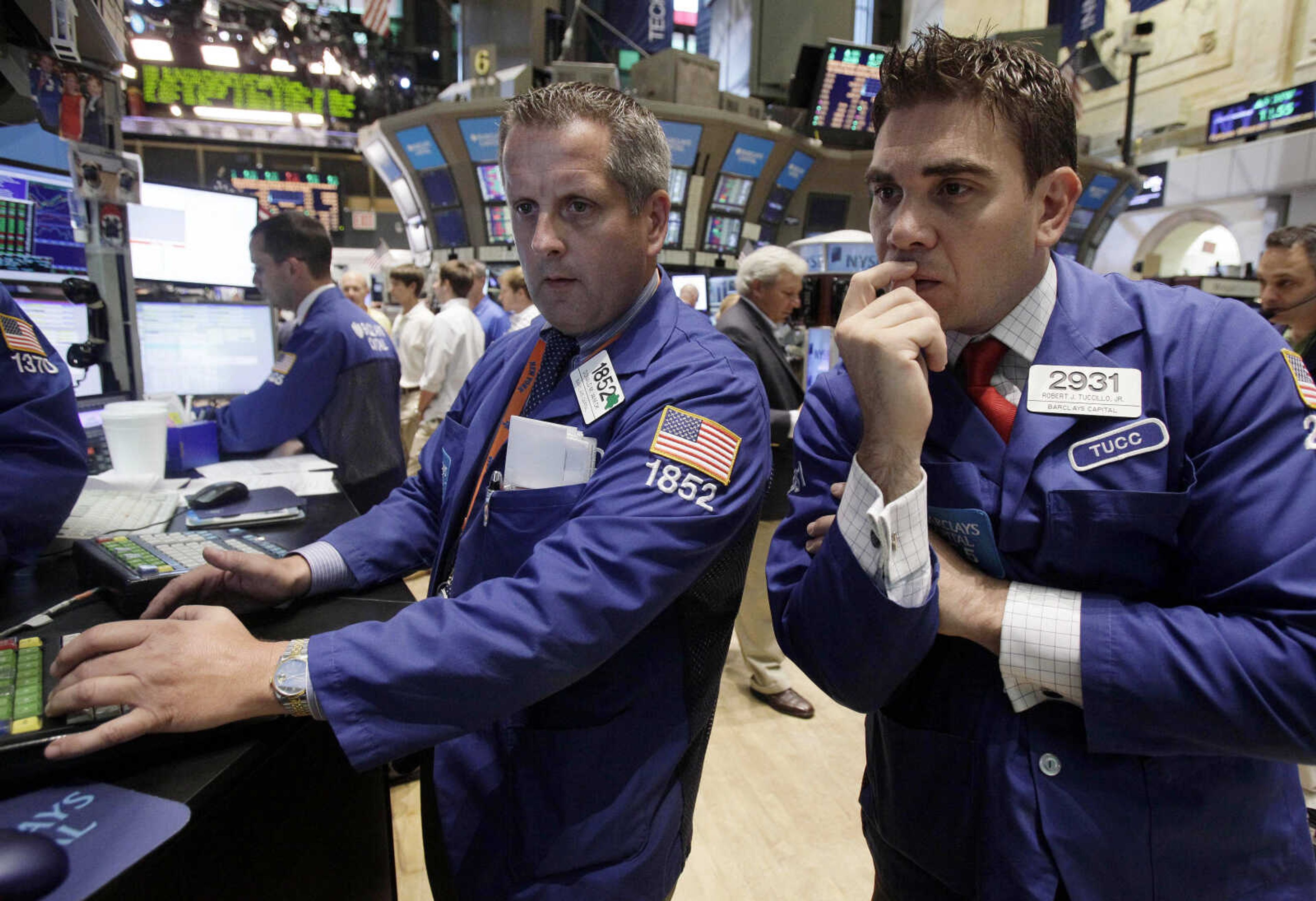Stocks swing wildly after statement from Fed
NEW YORK (AP) -- The Federal Reserve spoke -- and financial markets swung wildly before rallying. The Dow rose nearly 200 points about an hour after the Fed's statement was released.
NEW YORK (AP) -- The Federal Reserve spoke -- and financial markets swung wildly before rallying.
The Dow rose nearly 200 points about an hour after the Fed's statement was released.
But stocks first sank after the Fed said that economic growth this year has been "considerably slower" than it expected and that it will keep interest rates near their record low of almost zero until at least the middle of 2013. But then they shot back up.
The 10-year Treasury note rose sharply within minutes, sending its yield down to 2.10 percent, a low for the year. It had reached a low of 2.34 percent on Monday. A bond's yield drops when its price rises. Gold, considered a safe haven when other investments are tumultuous, rose again to $1,773.60 per ounce, up from its $1,713.20 closing price on Monday.
The Fed said that it expects "a somewhat slower pace of recovery over coming quarters." It also said that temporary factors, such as the high price of gasoline this spring and Japan's March earthquake and tsunami, were only part of the reason for the weaker economy.
The Fed statement didn't give investors any new information, said Peter Coleman, head of equity research at investment bank JMP Securities. He said investors might have liked to hear something more positive "but the data, with the exception of one okay jobs report, has been pretty consistently negative the last few weeks."
"The market is already pricing in" low rates for the long term, said Alan Ruskin, an analyst with Deutsche Bank. He said reassurance that rates would stay low until mid-2013 was unlikely to provide much of a boost in the near term.
In late afternoon trading, the S&P 500 was up 2.3 percent, or 26 points, to 1,144.
The Dow Jones industrial average rose 196 points, or 1.8 percent, to 11,003. That follows its worst day since 2008. On Monday the Dow plunged 634.76 points on the first day of trading since Standard & Poor's cut the U.S. credit rating from AAA to AA+.
The Nasdaq composite index rose 60 points, or 2.6 percent, to 2,418.
Boosting the stock market isn't one of the Fed's jobs, but that hasn't stopped investors from parsing every word of the statements made by the Fed and its chairman, Ben Bernanke.
The Fed's mandate is to keep prices stable and promote low unemployment, not boost stocks. But a stock dive after Fed comments has happened before. On June 3, the stock market suffered a late-day dive when Bernanke spoke in public at a conference. Investors said they were looking for a hint of new plans to spur economic growth. When that didn't come, all three major indexes sank.
After Bernanke outlined the plan for a second round of quantitative easing in August 2010, the S&P 500 index gained 28 percent over eight months. Investors pointed to that rebound as evidence that quantitative easing worked -- and so did Bernanke. This sentiment led some people to believe that if stocks fall too far, the Fed would come to the rescue.
Economists now believe there is a greater chance of a U.S. recession because the economy grew much more slowly in the first half of 2011 than previously thought. The economy grew at its slowest pace in the first half of 2011 since the recession ended in June 2009.
The manufacturing and services industries barely grew in July. The unemployment rate remains above 9 percent, despite 154,000 jobs added in the private sector in July.
Economies across the globe are also struggling.
Worries are growing that Spain or Italy could become the next European country to be unable to repay its debt. Another concern: high inflation in less-developed countries, which have been the world's main economic engine through the recovery. China's inflation rose to a 37-month high in July.
Concerns about the global economy have pulled attention away from stronger corporate earnings this spring.
Dish Network Corp.'s second-quarter net income rose 30 percent to $334.8 million on stronger revenue.
The housing market, though, remains weak. Homebuilder Beazer Homes USA Inc. said its loss widened last quarter after it closed on fewer homes.
Among the 441 companies in the S&P 500 index that have already reported their second-quarter earnings, profits are up 12 percent from a year ago.
____
AP Business Writers Matthew Craft and Sarah DiLorenzo contributed to this report.
Connect with the Southeast Missourian Newsroom:
For corrections to this story or other insights for the editor, click here. To submit a letter to the editor, click here. To learn about the Southeast Missourian’s AI Policy, click here.









